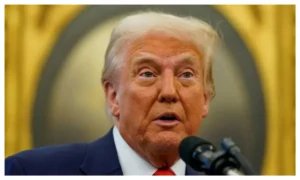Nigeria is undergoing significant economic changes aimed at improving the country’s financial future. One of the most impactful steps taken by President Bola Tinubu’s administration has been the removal of the fuel subsidy, which had cost the government billions of dollars each year. Senator Sani Musa, who leads the Senate Committee on Finance, believes this decision, along with floating the naira, is one of the best moves for Nigeria’s economy.
Upon taking office in May 2023, President Tinubu made the bold decision to end the fuel subsidy, freeing up funds previously used to support fuel prices. This change was made to attract investment and stabilize the economy. While many investors welcomed this reform, it has led to challenges for everyday Nigerians, including a significant rise in fuel prices and inflation currently at 25%.
Senator Musa addressed these challenges during an interview on Channels Television, describing the subsidy removal as a tough but necessary choice. He pointed out that the funds saved from stopping the subsidy could be directed toward more productive uses, potentially benefiting public services and infrastructure in the long term.
The senator also mentioned that the Federation Account Allocation Committee (FAAC) distributes enough funds to Nigerian states each month. However, he emphasized that for these reforms to succeed, state governments need to manage these funds responsibly. According to Musa, if state governments fully utilize the funds allocated to them, they could solve many local issues and improve public services significantly.
In summary, while the removal of the fuel subsidy has led to immediate challenges, Senator Musa believes it is a step in the right direction for Nigeria’s economy. He calls on state governments to use their allocations effectively to maximize the benefits of this reform, ultimately contributing to the country’s overall financial health.







